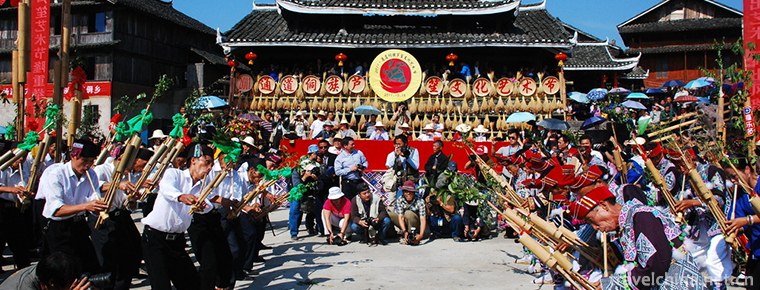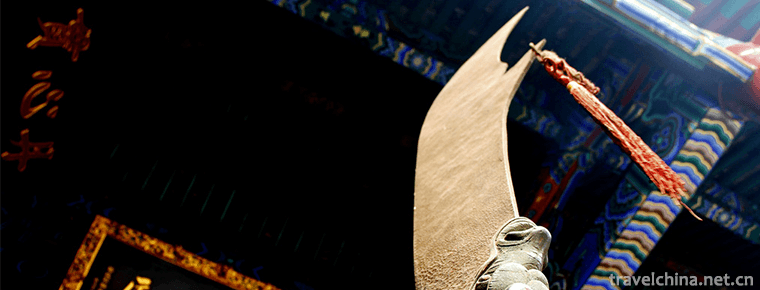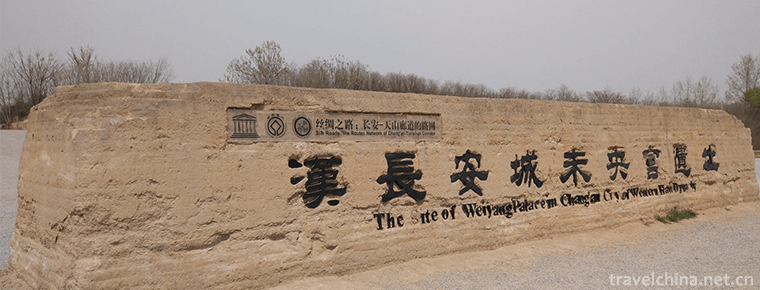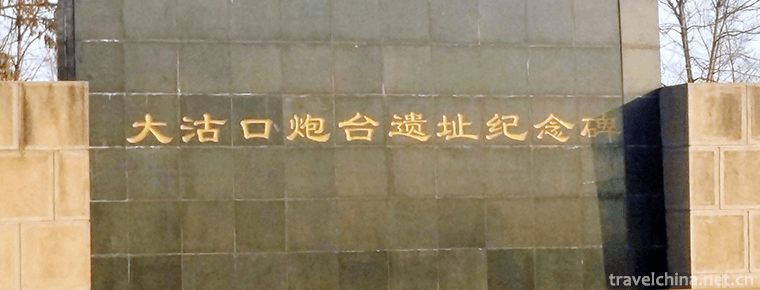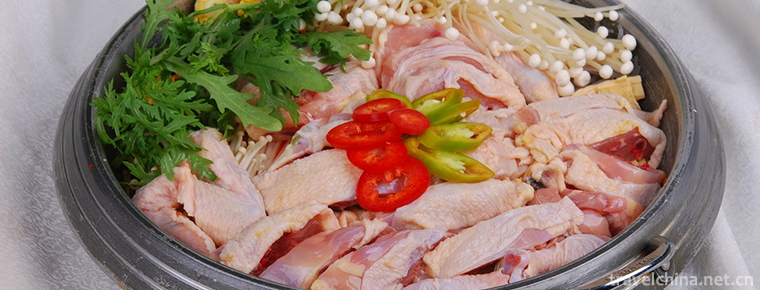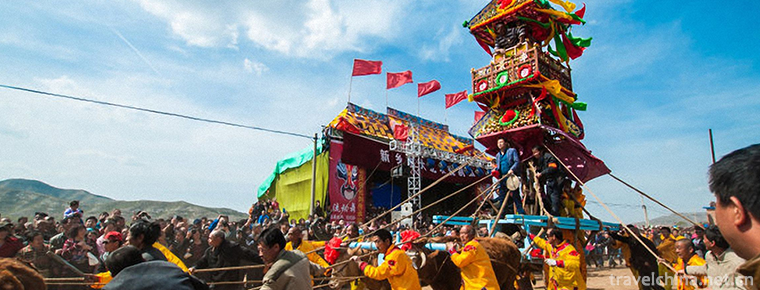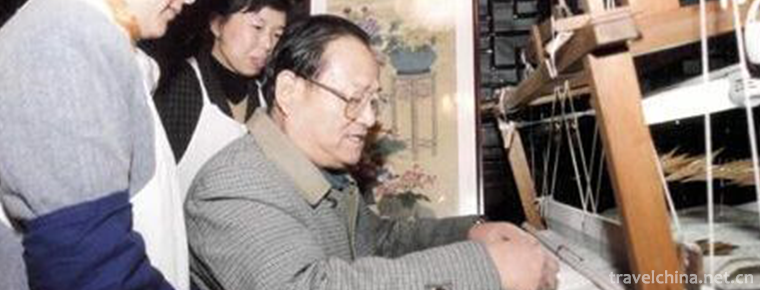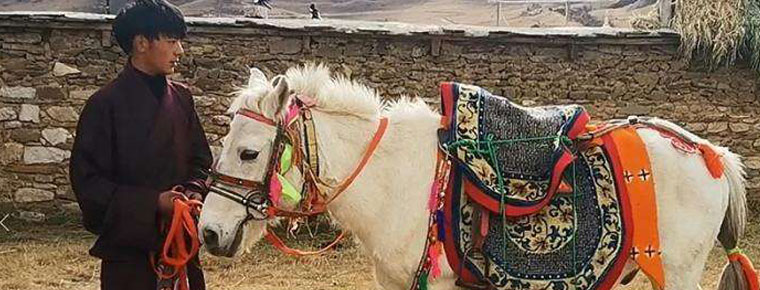Hu Shi
Hu Shi
Hu Shi (December 17, 1891 - February 24, 1962), who used the name "Xi Jiang", learned the name of Hong Kong, and later changed his name to the right word. A thinker, a writer, a philosopher. Huizhou Jixi People advocating " Writings in vernacular "And leadership New Culture Movement World famous.
Enrolled in a private school in her hometown, she was 19 years old. Boxer Indemnity Officials, students studying in the United States, philosophers. john dewey He returned home in the summer of 1917 and was hired as a Peking University Professor. Joined in 1918 New Youth The editorial department strongly advocated vernacular Chinese, promoting individuality liberation and freedom of thought. May Fourth leader They are leaders of the new culture movement. His article expounds the difference between new and old literature from the perspective of creative theory, advocates the creation of new literature, and translations of France. Dude , Maupassant Norway henrik ibsen Some of his works took the lead in the creation of vernacular literature. The vernacular poetry published in 1917 is the first batch of new poetry in the history of modern literature.
" The May 4th Movement "After" Li Dazhao , May Fourth leader The intellectuals who accepted the Marx doctrine diverged from one another, from the "dispute between questions and doctrines" to the end, advocating improvement, and changed his attitude of "not talking politics for 20 years and not doing politics for 20 years". He did the work in 1920s. Diligently weekly report "In 1930s," Independent review In 1940s, the "independent society" was held. In 1938~1942, he served as ambassador of the Republic of China to the United States. Acquired in 1939 Nobel prize in literature Nomination. 1946~1948 years as president of Peking University. In 1949, he went to the United States. Return to Taiwan in 1952 and start in 1957 Academia Sinica Dean. Died in Taipei in 1962.
Hu Shi's academic activities throughout his life were mainly in literature. Philosophy In history, textual research, pedagogy and red studies, the main works are: Outline of history of Chinese Philosophy "(") "," Trial set "," History of Vernacular Literature (upper) and " Hu Shi Wen Cun (four episodes). What he most influenced academically was his advocacy of "bold assumption and careful verification".
Paul Mauriat's History
Early school
1891 (seventeen years in Qing Dynasty), and was born in December 17th in Songjiang mansion, Jiangsu province.
Shaxian County (now Pudong New Area, Shanghai), Hu Shi is father. Hu Zhuan And the third wife. Feng Shun Di Hu Shi, the son of his father, was 50 years old when he was born.
In 1893, I went with my mother, Feng Shundi. Taiwan His father, Hu Chuanren. 1894 (Guangxu twenty years), China and Japan Sino Japanese War of 1894 When the mother left Taiwan and returned to Shanghai, she went back to Anhui. Huizhou Shang Zhuang village, Jixi county. His father died in Xiamen.
1904 (Guangxu thirty years), and Jiang Dong show engagement, from three brothers to Shanghai, enter Mei Xi primary school Tong. 1905 (Guangxu thirty-one years), entered the school.
In 1906 (Guangxu thirty-two years), the Chinese public school was accepted. In 1908 (Guangxu thirty-three), he entered China's new public school and served as an English teacher. 1910 (Xuan Tong two years), studying in the United States Cornell University Selected agricultural subjects. In 1915, Columbia University Department of Philosophy john dewey
Realize one's ambition
In 1917, in the " New Youth " On literary improvement " In the same year, I returned home from the final examination of Ph.D. degree. Peking University Professor, take part in editing the new youth, and return to Anhui and Jixi to marry Jiang Dong su.
In 1919, he took the weekly commentary and published more research questions and less talks about it. Reformism To stir up problems and doctrines.
In 1920, we left the new youth. Nanjing University Summer school lectures
In 1921, Mr. Dewey and China.
In 1922, he served as Dean of Peking University and chief of the acting liberal arts, and founded "hard weekly". In its second issue (May 14, 1922) and Cai Yuanpei , Li Dazhao , educational theorist and reformer , philosopher Jointly published Our political stand "
1924, and Chen Xi Ying Wang Shijie and others founded the modern review weekly. In 1925, he joined Beijing in February. Aftercare Conference And participate in drafting some conference documents.
In 1926, Guo Bingwen and his colleagues initiated the establishment of the Sino American Association in the United States. Travel Britain , France , U.S.A , Japan All countries.
In 1927, he received his Ph.D. in philosophy from Columbia University. Xu Zhimo and other organizations set up the new moon bookstore. In Shanghai Jiang Jieshi and wife of Chiang Kai-shek I met Jiang Jieshi at the wedding.
Founded in 1928. new moon Monthly magazine, Ren national university Principal.
Human rights fighter
In 1929, in the crescent magazine, the publication of the "human rights and the law of nations" marked the beginning of the human rights movement, and then published "when can we have a constitution?" Sun Yat-sen Commentary on "easy to understand and difficult to understand", "new culture movement and the Kuomintang".
In 1930, Hu Shi, Luo long Ji , a leading figure in the Crescent Moon Society The three articles on human rights issues are collected. Human rights collection The crescent bookstore was published and was banned by the Kuomintang government. In April 10th, in our road, we put forward: "to eradicate poverty, disease, ignorance, corruption, and disturb the five enemies".
In 1932, he was president of the Faculty of Arts and director of Chinese Literature Department of Peking University. Jiang Ting Wei , Wen Jiang Ding , Fu Si Nien , Weng Wen Hao After the creation of the independent review, Hu Shi wrote 1309 articles for it.
In January 4, 1935, he arrived in Hongkong for a stay of five days. University of Hong Kong Honorary Juris Doctor degree. Repeatedly asked to serve as ambassador to Japan failed.
During the war of resistance against Japan
In 1937, 77 incident After the occurrence, Jiang Jieshi In August 19, 1937, Hu Shiji was asked to seek support from the United States for China. In 1938, he served as ambassador of the Republic of China to the United States.
In September 8, 1942, he resigned as an ambassador to the United States and residing in New York for academic research. In 1943, he was appointed Honorary Advisor of the Eastern Department of Library of Congress.
In September 1944, Harvard University Give lectures. In 1945, the delegation of the delegation of the national government of the Republic of China attended the United Nations constituent assembly in San Francisco. In the capacity of the chief representative of the delegation of the government of the Republic of China, he attended the conference of the United Nations Educational, scientific and Cultural Organization in London to draw up the Charter of the organization.
President of Peking University
He returned to Beiping in July 1946 and became president of Peking University. In November 28th, Jiang Jieshi presented the draft constitution of the Republic of China to the National People's Congress, and made a solemn speech to explain its main points, which was accepted by President Hu Shi of the general assembly. In December 25th, the National Convention was officially held. three readings Through the draft constitution, the National Congress was closed, and Jiang Jieshi accepted the Constitution by Hu Shi on behalf of the Kuomintang government.
In January 24, 1947, Jiang Jieshi wanted to invite Hu Shi to become the ROC examination institution.
Chang and state councilor, but Hu Shi insisted on refusing to join the national government. In April, Wang Yaowu sent Ji Xianlin to Hu Shishao to pay his respects and greetings, and invited Hu Shi to come to Ji'nan to give an academic speech at a convenient time. Immediately answered, Hu Shi promised to come to Ji'nan with the educational colleagues to study Shandong's education.
In April 3, 1948, Jiang Jieshi thought that the constitution of the Republic of China was a cabinet system, and the real power was in the cabinet. The president of the Republic of China should be in a virtual position and asked the fair people to be better. So the Chinese Kuomintang would like to call the Chinese Kuomintang to support Hu Shi, who was not party member, to run for election as the first president after the constitution was established. After Hu Shi became president, Jiang Zhongzheng was appointed the president of the Republic of China, Hu Shi agreed, but later the Kuomintang Central Committee still supported Jiang Jieshi to elect the president.
In November of the same year, when the Chinese people's Liberation Army arrived at Beiping City, Hu Shi was called by radio to continue to serve as president of Peking University. Hu Shi was determined to leave Beiping. In December, the commander in chief of North China was defeated. Fu Tso Yi Hu Shi was invited to discuss in Huairen Zhongnanhai hall. It was "yes" and "Hu Shi" sent eight words: "it is harder to fight than to fight." In December 13th, Zhu Jia Hua , Fu Si Nien , Yu Da Wei , Chen Xue Ping Four people in Nanjing managed to send a plane to pick Hu Shi up. Hu Shi refused to leave Peking University, but in December 14th, he persuaded him to leave in Nanjing. At 4 p.m. on December 15th, Fu Zuoyi sent troops to escort Hu Shi to Beijing Nanyuan International Airport to board the plane. Arrive at Nanjing Ming the Imperial Palace airport at ten o'clock in the evening.
United States and Taiwan
In March 9, 1949, the Jiang Jieshi faction. Chiang Chingkuo I went to Shanghai to visit Hu Shi. Hu adaptation in April 6th Republic of China government Request from Shanghai to take the Wilson wheel to the United States. Lobbyist For peaceful solution Chinese Civil War The problem sought the intervention of the US government. April 21st arrival San Francisco In April 19, 1949, when the government rejected 24 requests from the Communist Party of China, the Chinese people's Liberation Army had crossed the river. At this time, the situation was fixed. Hu Shi had run into the wall everywhere in the United States and published "no freedom under communist rule". Eileen Chang Acquaintance, friendship. " Free China In the first issue, Hu Shi was the issuer in name. New president of the Republic of China in June 7th Shanxi warlord in the Republican Period Hu Shi was appointed Minister of foreign affairs, but Hu Shi refused to take office.
In early March 1950, Hu Shi went to Washington to attend the China Education and culture foundation meeting and was promoted to the director general of the society. He is the curator of the East Asian Library of Princeton University. In June 23rd, Dean Rusk, assistant secretary of state for Asia Pacific Affairs, met with Hu Shi and tried to persuade Hu Shi to come forward to lead the anti Communist pro american people in exile and Taiwan to replace Jiang Jieshi's regime. Hu Shi expressed no interest in it.
In 1952, Hu Shi and Jiang Tingfu jointly organized opposition in New York.
The party carried out democratic politics in Taiwan, but Hu Shi returned to Taiwan. Jiang Jieshi After the discussion, Jiang Jieshi was opposed, so that the party failed.
From February 1954 to March, Hu Shi, sixty-four years old, took part in the second session of the first national assembly in Taiwan, and served as "temporary chairman".
In 1955, the Chinese mainland launched the critical Hu Shi movement, the book of life, the book of learning, the Sanzhi bookstore, published the compilation of the critique of Hu Shi's thought, and Hu Shi lived in the United States to collect these eight books and earnestly endorsed them. And criticize the cause of Hu Shi movement. Geng Yun Zhi The saying is: I think this sentence is the most gentlemanly saying in his life. Hu Shi said that he failed in the examination of Peking University according to the level of Mao Zedong. Mao Zedong was very decisive in launching a nationwide campaign to thoroughly criticize Hu Shi.
In November 1957, he was the dean of the Taiwan Central Academy.
In April 1958, he returned to Taiwan to take up residence. Since then, Hu Shi has been returning to Taiwan for many times. During the period, all works such as Hu Shi's anthology and Hu Shi's self account were sold and published by buyout companies because of economic relations.
Evening scene of mulberry elm
In 1959, he was also chairman of the Taiwan long term scientific development committee.
In 1960, thunderclap Joint opposition with Taiwan and Hong Kong people outside the party Chiang Kai-shek Contrary to Taiwan
Hu Shi, the three consecutive president of the constitution, is one of the co signers. After that, Hu Shi did not participate in the party affairs of Lei Zhen preparatory group, but he encouraged many of them. In September of the same year, Lei Zhen was arrested for "common spy". Lei Zhen incident And this incident is generally thought to be Jiang Zhongzheng's plan to prevent Lei Zhen from organizing the new party. Hu Shi, who was still president of the academia academia academia, was also involved in the rescue of Lei Zhen although he was not involved in the case. Hu Shi has left a three thousand character diary explaining the whole story.
In February 1961, Hu Shi attended. National Taiwan University Principal Chien Shih-Liang When I arrived, I felt sick and sent to the hospital for 135 pulses. Blood in the sputum was diagnosed as coronary atherosclerotic heart disease. The hospital was in February and went home to support itself, but the body was getting weaker. In November, the condition deteriorated to the convalescence of Medical School of National Taiwan University.
In January 1962, Hu Shi was discharged from Taiwan University Hospital. In February 24th, when the drinking party was held at the Central Research Institute, the sudden death of heart disease died in Nankang District, Taipei City, Taiwan Province, and Hu Shi died. March 1st Jiang Jieshi To go to the memorial ceremony, and to book a couplet: "a model of old culture and a new model of old ethics."
Main achievements
Academic achievement
First of all, Hu Shi summarized the academic research in China in the past three hundred years. He incorporated the study of collation of national heritage or Sinology into his " Chinese Renaissance Within the scope of " Confucianism "This is not only the masterpiece of Hu Shi's scholarship, but also the masterpiece of Chinese modern cultural history in the 1930s. Hu Shi will focus on the study of Zen history. The twenty-eight fathers of Western Heaven The question of inheritance has been transformed into the question of Zen revolutionaries themselves. His assertion bears many achievements and achievements in the future.
Hu Shi's philosophical thinking does not lie in the academic standpoint put forward by Hu Shi himself.
But his pioneering spirit in the history of thought and its far-reaching influence. The first person to make Chinese traditional philosophy really enter the process of modernization is Hu Shi. It was Hu Shi who published it in February 1919. Outline of history of Chinese Philosophy "(volume) first broke through the traditional concepts and norms and norms of Chinese traditional history and ideological history for thousands of years, and became a paradigm change. This change really played a typical role and played a leading role. It not only brought unprecedented impact to the academic circles at the time, but also affected a group of scholars. Liang Qichao , Gu Jie Gang , Guo Moruo And so on, it is in the following eighty years of wind and rain, and even today, it is still for people to be sure.
Secondly, Hu Shi's contribution to Chinese philosophy lies in his efforts to realize the modern transformation of Chinese traditional philosophy. In the history of modern Chinese philosophy, after Hu Shi was founded, there were also a number of philosophers. philosopher who combined elements of Neo-Confucianism and Mahayana Buddhism , philosopher , a noted philosopher , Jin Yuelin and Feng Qi The unceasing progress of Philosophy in philosophy, not only highlights the journey of modernization of Chinese philosophy, but also shows Hu Shi's pioneering work in the transformation of Chinese traditional philosophy. Because the modern transformation of Chinese traditional philosophy is constantly advancing under Hu Shi's courage and innovation spirit.
Literary achievement
In January 1917, Hu Shi published the "improvement of literature" in the new youth. After that, Chen Duxiu became the leader of the literary revolution. The two people became the leader of the literary revolution. In the literary revolution advocating vernacular and anti classical writings, Hu Shi was the pioneer of opening up, and made a significant contribution, known as "the father of Chinese Cultural Revolution". The literary revolution initiated by Hu Shi includes poetry, drama and fiction.
· Poetry
Hu Shi published the first vernacular poetry anthology. He developed his own language, form, style and style. Free verse written in vernacular Try. This is not a spectacular, but very deep, and with the previous generation. Poetic revolution There are essential differences in poetry innovation. It is precisely Hu Shi's "54" vernacular poetry that "bridges the old and new two art ages". The Chinese poetry has ended its development and changes in the classical form for thousands of years, initially established the new artistic form of Chinese poetry, transformed the classical and contemporary Chinese poetry titles, and began a great "new poetry era". After decades of evolution, the structural form of Chinese lyrics has undergone a radical change, which starts with Hu Shi's attempt set.
· Theatre
In drama, he not only translated Ibsen's Nora with Luo Jialun, but also created the drama "the final event". Hu Shi's drama translation and creation are inseparable, and translation enables Hu Shi to absorb the nutrients of foreign drama and create the first modern drama in China.
· Novel
In fiction, though he did not create, he translated some Western short stories.
A novel. He said in "short story" and "translator's preface": "I am a person who strongly wants to advocate short stories. Unfortunately, I can not write. I can only introduce some famous works to the later scholars." Hu Shi later pointed out in the theory of literary revolution in literature, "literature improvement" is mainly focused on destruction. From the point of view of construction, two points that need to be emphasized in literary revolution are methods, which need to learn from the west, including the translation of Western short stories.
In Hu Shi's view, "there are two purposes of a novel: one is to entertain people, one is to be virtuous." No matter how entertaining people are, there are no ends to the novel. One is in sketching, one is in layout narration, the other is in traditional Chinese painting, while western novels are the two. Now we should use western structure to make up for our shortcomings. Scholar Zou Xin Ming It is believed that Hu Shi's reading and translation of Western short stories during his stay in the United States is an important source of his literary revolutionary ideas and practice.
In addition, Hu Shi contributed to literary theory and wrote the first modern Chinese academic monograph "Vernacular Literature".
Educational achievement
Hu Shi taught in Colleges and universities. Mou Zong San , Luo Gang , Gu Jie Gang , critic , Fu Si Nien And so on. Among them, Gu Jie Gang also said that his whole way of scholarly research was based on Hu Shi's textual research on the outlaws of the marsh.
In addition, Hu Shi also pays attention to helping peers and promoting backward. Lin Yutang During his study abroad, the Qing government abolished funding for overseas students. Lin Yutang continued to study abroad with Hu Shi's support. In 30s, Hu Shi had the right eye to promote, appoint and help. a leading figure in the Crescent Moon Society The complete works of Shakespeare, translated as one of Liang Shiqiu's three achievements in the literary world, are completed. Chen Zhi fan Hu Shi and Hu Shi are sponsoring the study in the US. To Hu Shi's letter, the letter to Hu Shi in the university age. Ji Xianlin Though not a student of Hu Shi, he was promoted by Hu Shi at the beginning of his return.
Ideological proposition
Political theory
Hu Shi pursued politics all his life. democratic , Rule by law , free , human rights etc. Universal value Implementation. He objected. Violent revolution We must persist in gradual reform. He advocated "54" period. Mr. de (democracy) led in Taiwan in late years. Free China " His liberal friends. Wen Jiang Ding , Jiang Ting Wei , Wu Jing Chao And so on in 1930s. Independent review During this period, all of them were shaken. "Autocracy" is an effective way to establish a state. In the debate, Hu Shi refused to give up. He firmly believed that only a democratic system could really create a stable modern country. "Autocracy" - even " Enlightened autocracy "Finally, the strong government will not be supervised and sanctioned.
Hu Shi's contribution lies in the creation of modern China. Public opinion " His space for developing public opinion is also a practice of his political ideal. He advocated with all his might. Free speech , Freedom of thought , Freedom of publication And so on, in order to win the people's legitimate right to criticize the ruling party and the government.
After the Nationalist Government of the Republic of China moved to Taiwan, Lei Zhen started the magazine "free China" in order to publicize democracy and freedom, and asked Hu Shi to be the issuer. The magazine "free China" has been published for 10 consecutive years. It is the most important speech and publication of Taiwan in the 50s of last century, and a fortress for spreading democratic ideas. Later, the magazine turned against the Kuomintang's high pressure rule. Lei Zhen, a member of the magazine, voicing his voice in the magazine and preparing for the establishment of the opposition party's participation in politics, finally caused the disaster to be suspended, and Lei Zhen was also falsely arrested in prison. Lei Zhen incident ) But free China's implementation of the democratic ideology and freedom of speech advocated by Hu Shi has influenced the establishment of the Taiwan's non Party movement and the Democratic Progressive Party, and is the sower of the Taiwan democratic movement.
Experimentalism
Hu Shi is from the United States. Experimentalism Master John Dewey His articles are often full of experimentalism and are constructive.
Hu Shi emphasized that learning is a gradual process, and he advocated "bold hypothesis, careful proof". In the latter part of this sentence, whether we study science, study Sinology and study the way of running a country, we need more patience and more caution.
Seeking truth from facts is not to avoid facts. Idealism It is not to abandon reality and rebuild society. It is Hu Shi's experimentalism that he needs a practical spirit to discover problems and improve reality in fact.
Liberalism
Don't easily deny or affirm others' opinions and opinions, and don't assume that your views are absolutely right. Hu Shi should be tolerant of alien voices, and the premise of freedom is tolerance, so that society can truly be free.
Hu Shi's liberalism is not just that people should strive for themselves. Personal freedom , Free speech In terms of legal equality, Hu Shi may place more emphasis on the importance of tolerance for social freedom. A truly free society is an inclusive society that allows people of different political views to live together. This society allows people from different parties to hold important positions. This society allows different voices and different political ideals, and this society also allows you to be. Atheist Of course, you are also allowed to have religious beliefs. This society is everywhere free people, precisely because of their mutual tolerance.
cosmopolitanism
Hu Shi believed that the law should be binding on anyone. Need to be in accordance with the law
Governance requires universal law.
There are three aspects of Nationalism: the most shallow exclusiveness, followed by the support of the inherent culture of the country. The highest and the most difficult is to build a nation state. Because the last step is the most difficult, so all nationalist movements are often the easiest way to take the first two steps forward. Ji'nan Massacre Later, after 918, it was extremely noisy. Exclusivity Slightly reduced, however, the shouting of the old culture has been stirring up in all directions. It's easy to hide the trend of keeping the old car back, so it's also unfortunate.
In the golden age of a most modern country, Hu Shi was immersed in a standardized democratic political system. He soon got rid of the narrow nationalism and stepped onto a more open stage, observing and thinking about China from the angle of world civilization. To some extent, he has become one. Cosmopolitanism "
So Hu Shi is not a narrow nationalism. He is thinking about China's status in the world. China should embrace the world.
Optimism
Hu Shi did not advocate the sage of the East. Inaction Life is a struggle. Even in a dilemmas, we must be optimistic and confident about our future. It is Hu Shi's optimism about life that every step can be filled with ambition and every progress as a great hope.
"We have to accept future. good fruit—rewards of good deeds We must try to cultivate new causes. One grain and one seed must have a full warehouse full harvest. This is what we should have today. We must be convinced that today's failure is due to past efforts. We must be convinced that today's efforts must have a great harvest in the future. There is a saying in the Buddhist Scripture: "blessing does not donate". Tang donation was lost in vain. We should also say, "not to donate!" "No effort will be lost in vain. When we can't see the unexpected, in the direction we can't see, you see! Your seeds have already taken root, and their leaves have borne fruit.
Character evaluation
Overall evaluation
Hu Shi is one of the most influential thinkers and scholars in China in the last century. Although his influence has negative negative elements, its main aspects are positive and progressive. This is because he devoted his whole life to advocating democracy and freedom. Rationalism It is precisely this kind of thinking that helps many young people to establish their independent and free personality and form a way of thinking with independent thinking and respect for facts, and become people with democratic and scientific attainments. It can be said that Hu Shi has contributed to the growth of China's democratic forces after "54".
Celebrity evaluation
Yu Ying-Shih (historian Sinologist): for such an enlightened figure, he can neither be measured by Chinese traditional Confucian standard, nor can he be measured by the level of modern western professional philosopher. It is undeniable that he has basic training in two aspects of western philosophy and philosophy. This training finally enabled him to become a modern generation in the history of Chinese philosophy.
Ji Xianlin (ancient philologist, historian, writer, linguist): Hu Shi is a scholar. He is not good at listening. He is a bookworm.
Zhang Zhongxing (scholar, philosopher, essayist): at the time of Peking University, he was the first to have a wide range of friends and friends. It is natural or effective, which is left to historians and psychologists to study; from the point of view of phenomena, we all feel that he is most approachable. Even if the student went to see him, he was also known as a gentleman. He laughed all over the face. If he went to his private house and sat in the living room talking and going out, he would never order.
a leading figure in the Crescent Moon Society (writer): Mr. Hu, like other great figures, is approachable. "Warm and fierce" is the best description. I have never seen him in a rage or domineering manner. He always looks at young people, subordinates and servants. It is when he is humiliate by setbacks, he does not lose his usual. "If your heart breaks, it will be easy."
Te-kong Tong (Chinese American scholar): Sun Yat-sen Sir and Mr. Hu Shi are the standard bearers of the five hundred year Chinese and Western culture. If Lian Luo Guan has successors, they are all generations of daughters in law. If the flag is rolled up after the parade, Hu Shi's broken books are not worth a few words. So if we regard Hu Shi as a simple scholar, he will be no good. Even he is an expert in "Shui Jing Zhu". This is the "experts" both at home and abroad, regardless of "Bai Zhuan" or "red school" - the reason why he underestimated him. Hu Shi is a master of enlightenment in the course of "traditional China" to "modern China".
Zhang Taiyan (democratic revolutionist, thinker and master of pun): "philosophy, is Hu Shi also talking about it? Kang and Liang are somewhat "root". Hu Shi, he doesn't even have roots.
Lu Xun (writer, thinker): (1) Mr. Shi is closely closing the door and sticking a small slip on the door: "no weapons, no doubt." This can be true, but some people, at least like me, sometimes have to think sideways. 2. New Youth In the period of Hu Shi, Lu Xun Hold a positive attitude. He said, "what I noticed most was Chen Duxiu and Hu Shi." And frankly, "I admire Chen Hu."
Lee Ao (historian, litterateur): in his forty years, he has brought the style of literature and history to such a pedantic situation. He can not get away from the tricks of Qianjia and Yu, and can not get rid of the confrontation between the two schools of Chinese Han and Song dynasties. He is still wearing the tiger skin of "scientific method" and leading the subsidy of the "long term development science committee". This is a disproportionate matter.
Mao Zedong (proletarian revolutionist): Hu Shi is also stubborn. We trust him to bring him back, and we do not know what he is after. There is nothing good about criticism. Tell the truth, New Culture Movement He is meritorious and can not be denied. He should be practical and realistic. By twenty-first Century, restore his reputation at that time.
Bear cloud (reporter, scholar): miss Hu Shi, China missed 100 years, and "hundred years of work" is not credible in "hundred days of reform". But Dewey's doctrine imported from Hu Lao Fu is a little bit of sincere social transformation. Hu Shi is not only John Christoph, but also Olivier. He is a force of thought, not a force of violence. He has been neglected, but no one has ever failed him.
Anecdotes
Associate with Lu Xun
During the new culture movement, Hu Shi and Lu Xun often discussed problems together, agreed on manuscripts, and exchanged letters with each other, borrowing books and materials closely. Lu Xun in " Silent China Among the essays, "how to write", Hu Shi is the first "attempt" of literary innovation. Hu Shi's diary must be much better. After reading Hu Shi's works on vernacular Chinese, Lu Xun praised him for his "good faith". I very much hope to print it at an early date, because this historical hint is better than many empty theories. (August 21, 1922 to Hu Shixin) but later because Hu Shi advocated young students to bury their heads in books, participate in politics less, and crescent writers. Chen Yuan Liang Shiqiu and other disputes, and Hu Shi's advocating "good government" doctrine, and the emperor who was abdicated. Pu Yi And Jiang Jieshi, the head of the national government, asked Lu Xun to split up with Hu Shi.
From late 1920s to mid 1930s, Lu Xun told Hu
I saw many articles that satirize and criticize Hu. Lu Xun, a left-wing revolutionary writer, and Hu Shi, a right-wing culture hero, are poles apart. Lu Xun criticized Hu Shi for his praise and praise, but he was satiried and repelled by praise. History of Vernacular Literature Later, they all referred to as "not well" either.
In " Chinese literature in the past fifty years "Hu Shi summed up the achievements of 54 vernacular literature," the biggest achievement was Lu Xun. His short stories are from four years ago. A Madman's Diary "To the nearest" The true story of Ah Q "Though not much, it's almost no bad." In the 1922, Hu Shi praised Lu Xun very much. He almost attributed his short stories to Lu Xun. For the left-wing writers including Lu Xun, the attacks and even abuse, Hu Shi is very generous, with the calm and indifference of "the old monk does not see or hear". So far, Hu Shi has not been able to curse Lu Xun. When Lu Xun was subjected to gratuitous abuse and personal attack, Hu Shi tried to defend Lu Xun against justice.
In November 1936, Su Xue Lin Write to Cai Yuanpei Hu Shi, attacking Lu Xun in a big way. She said Lu Xun was "psychologically sick", "dirty personality", "even the minimum" human "qualification is not enough. Hu Shi wrote back in December 14th and warned Su Xuelin not to attack her private behavior. She criticized her for using words like "clothes and scum" and "evil villain". Hu Shi also told her that Lu Xun's " a brief history of chinese fiction It is a great mistake to copy the salt Valley temperature. Salt Valley temperature In one case, we should clean up for Lu Xun. In his letter, Hu Shi also raised the question of how to correctly evaluate the characters: "anyone who talks about a person must always be fair. Love knows its evil and evil knows its beauty. Lu Xun has his strong points. For example, his early literary works, such as his research on the history of novels, are all excellent work.
Liang Hu relationship
Hu Shi entered this trend eighteen years later, and he is more likely to push this great wheel of change. But later, people need more conditions, just as Hu Shi is a returned student from Europe and America, so the movement for change under his leadership is more crazy. Result Liang Qichao Hu Shi was even more prominent when he was thrown behind. This is the portrayal of the "wave ahead of the Yangtze River". However, we must not forget that Liang has accomplished the mission of the pioneers.
The relationship between Liang Qichao and Hu Shi should be recognized as an example of modern Chinese intellectuals. Liang Hu's similarities are the conditions that Chinese intellectuals should have. The difference is showing that the times are undergoing rapid transformation.
Student view
Mr. Hu Shi's attitude towards students' strike is to choose calmness and persuade students.
Study at ease and don't do politics. His views are as follows:
1, modern China has been facing the Japanese military suppression and threat. In the military strength of the country, the rational Hu Shi believes that China will never have the ability to fight against Japan. Students only choose to be calm and calm and study hard. At the end of the Qing Dynasty and the beginning of the Republic of China, China's military strength was weak. At that time, calmly, the strength of China and Japan was different from that of Japan. Rationalism Attitude makes it.
2, the real collapse of a country is not the failure of military affairs, but the destruction of cultural science. In order to avoid the demise of our country, we should make great efforts in the cultural and academic undertakings of our country.
3, strikes, demonstrations, power announcements, slogans and slogans are of no benefit and harm to practical politics, because these political impulses have hampering the training of students.
Ambassadors to the United States
In 1938, Hu Shi became the Chinese ambassador to the United States. After the news spread to Japan, Japanese cabinet Under pressure, the Japanese public opinion at the time suggested that three people should be sent to Japan as ambassador to the United States at the same time to restrain Hu Shi's ability. The three are Tsurumi Yusuke , Ishii Kikujiro and Matsuoka You Among them, he is a literary expert, Shijing is an economic expert, and Song Gang is an eloquent.
Nomination of Nobel Prize
according to Nobel prize In 1939 and 1957, Hu Shi was nominated by the Swedish archaeologist Sven Hedin and the Hongkong International Chinese pen association as the candidate for the Nobel prize in literature.
Mrs. Hu
Hu Shi, a famous modern Chinese scholar, is a rabbit. His wife, Jiang Dongxiu, is a tiger. Hu Shi often jokes, "rabbits are afraid of tigers." Hu Shipa's wife laughed at that time. On one occasion, a friend from Paris sent Hu Shi a dozen French ancient coins. Because the money had "PTT" three letters, the homophonic reading happened to be "afraid of the wife". Hu Shi jokes with several friends who are afraid of his wife: "if you set up a" wife afraid Association, "these coins are used to make members' badges.
Lecture nonsense
Hu Shi often goes to university to give lectures. Once, in a university speech, he often quoted Mr. Confucius, Meng Zi and Mr. Sun Zhongshan. When he quoted, he wrote on the blackboard: "Kong Shuo", "Meng Shuo" and "Sun Shuo". Finally, when he made his own opinion, he burst into laughter, and he wrote "nonsense".
The first matchmaker
Hu Shi has the reputation of "the first matchmaker of the Republic of China", and there are countless family members. He likes to see young people in love and marriage, and has hosted more than 150 wedding ceremonies. From the known records, most of these 150 times witnessed marriage. Most of them were friends of the same generation of Hu Shi and scholars of the younger generation. Most of them were academics. There is a Hu Shi wedding ceremony in the United States, and there are photographs of the wedding live, but so far no researchers have disclosed. " Hu Shi's Diary On May 12, 1939, he recorded his marriage certificate in the United States. He wrote: "today, the Secretary of the museum tours." Wen Jun Marry Ms. Zhang Taizhen. Ms. Zhang is Zhang Lu His daughter, who came with the Shanghai Opera Troupe, was playing in New York when I was ill in New York. Therefore, Jian Wen and Mrs. Chang often met each other. Later, they signed an engagement and I gave them a marriage certificate.
Zhuang Xi Bu
After World War II, internationally known sinologist Recommend to Peking University Ji Xianlin Professor Hu Shi, who was then president of Peking University, readily accepted it. So Ji Xianlin successfully entered Peking University and met Hu Shi. Although there are still gaps in the academic age and social status of the two people, "but in fact, it is not the case. There are many opportunities for us to meet. I was almost a regular customer in his narrow and humble headmaster's office in the east house of the solitary hall. As a young younger generation, I never felt any sense of embarrassing in front of him.
Emotional experience
· Williance : wear a path through the stream.
In September 1910, Hu Shi obtained a scholarship from the Boxer Indemnity and went to the Cornell University to study agriculture. When Hu Shi studied in the United States, he met the young painter Miss Wei Lian Si. From then on, Miss Wei Lian Si became a confidant with him for forty-eight years. In Hu Shi's mind, Wei Lian Si is an ideal example of new women. Hu Shi thought that she was "high in character, rich in knowledge, and able to think. Gao Jie was almost mad. He read too much and had high views." They walked under the moon, talked by the lake, and sent letters to each other. Both sides deeply admired and adored each other. Wei Liansi's free and independent personality appeals to Hu Shi, the two people in the evening and evening. Wei Liansi is an art student. He is studying in New York art school. Hu Shi's cultural background is very thick. So they talk about art and talk about the affairs of the world, and they are getting deeper and deeper. In the autumn of 1915, Hu Shi transferred to Columbia University and wrote more than 100 letters to Wei Lian Si in two years. Later, because Hu Shi has been with his hometown. Jiang Dong Xi Betrothed, her mother's life was hard to break, and her mother's objection to intermarriage, they finally failed to enter the palace of marriage.
· Heng zhe Chen Over forty letters in half a year.
Hu Shi was studying magazines for international students. Heng zhe Chen He contributed to Hu Shi's new culture movement. Chen Hengzhe wrote a lot of vernacular poetry and vernacular novels. These vernacular works made Hu Shi feel his confidant. Between Hu Shi and Chen Hengzhe, there were more than forty letters in half a year. Just when Chen Hengzhe thought he had a dream come true, Hu Shi had to go back to his hometown to do marriage with Jiang Dong su. Chen Hengzhe had no choice but to retire and marry others.
· Cao Cheng Ying The beautiful woman in the cave
Hu Shi and Cao Chengying met for the first time.
He and Jiang Dongxiu's wedding. Cao Chengying is the sister of Hu Shi's three sister-in-law. He was invited to be a bridesmaid for Jiang Dong su. At this point, they did not expect that the encounter at the wedding was doomed to their long bitter relationship. In April 1923, Hu Shi went to Shanghai to attend a meeting to study the Drafting Committee of the new school system. During the recess, Hu Shi visited Hangzhou and dropped in on Cao Chengying, who had already been divorced. This time, Hu Shi spent five days in Hangzhou, and Cao Chengying kept company with them, which made their emotional progress. On parting, Hu Shi wrote "West Lake", which implied that Cao Chengying had a closer relationship with lovers. After the resumption of the meeting of the Drafting Committee of the new school system, Hu Shi returned to Shanghai. Two letters were kept here, and Hu Shi was also lingering in Cao Chengying's continuous affection. So after the meeting, he was able to use Peking University professor for five years' vacation. He came to Hangzhou again and rented a house in the monk Temple of Yanxia cave. At that time, the female teachers in Hangzhou also had their summer vacation. Cao Chengying took the name of Hu Shi to recuperate and went to live together with Hu Shi in Yanxia cave. Here, their feelings are rapidly warming up. They are "evil spirits that can not be driven away" and "the shadow that can not scatter my mind" (Hu Shishi). Night of the secret magic cliff They are also the most ardent love in their life, so that they are crystallized. Three months later, Hu Shi failed in divorce and Cao Chengying failed to marry.
· Xu Fang: romantic in Shanghai
In the period of the Republic of China
Xu Fang, a famous talent, a famous scientist in Qing Dynasty Xu Shou The great granddaughter of the late Qing Dynasty Xu Jian Yin Her granddaughter gave her all the true feelings of her first love to Hu Shi. From late January 1936 to late February, she had a coexistence with Hu Shi in Shanghai. In a letter to Hu Shi later, Xu Fang said, "we found happiness in Shanghai", while Hu Shi's diary was only a few words of understatement. After nearly 1 months, Hu Shi did not keep a diary. After that, Hu Shi's feelings for Xu Fang were obviously cold. In April 1941, Xu Fang wrote to Hu Shi to ask her to help her to go to the United States for further education. Hu Shi still did not pay attention to it. He resolutely cut off contact with Xu Fang, and fell into despair in Xu Fang in September 1943. Xu poly root Get married.
· Le worth A thought-provoking love affair
When Hu Shi arrived in New York in October 6, 1937, after a short rest, he went to see Dewey, a famous scholar, and met Dewey Secretary Robby Lowitz at first. Hu Shi met with the Jewish girl at the same time. They had a sense of intimacy, speculation and mutual appreciation. Especially, Lovett was more respectful and admirable to Dewey's favorite pupil. He became a good friend of another date in a few months. They often drink tea, eat, watch and talk together. From Hu Shi's diary, he gave almost all of his official duties to him. In 2003, the United States published a biography of philosopher Dewey, who talked about the love and marriage stories between Dewey and his wife. The author of this book sees Dewey's data preserved by the Dewey Research Center at Southern Illinois University, including some of his intimate letters written by Hu Shi. The close relationship between Hu Shi and her is before she married her ex husband Grant, but Dewey is already in love with her.
· Lu Xiaoman Secret love affair
It was rumoured that Hu Shi first saw Lu Xiaoman, and because he could not divorce his wife, Jiang Xiaoman turned to Xu Zhimo. Until Xu Zhimo and Lu Xiaoman's affair circulated, Hu Shi took an active part in his affairs and tried to match them as "the old man under the moon". Hu Shi and Lu Xiaoman's sense of friendship, Mrs. Hu has already heard about him. Seeing her husband's enthusiasm for Xu Zhimo and Lu Xiaoman, Mrs. Hu was furious. She thought that her husband was the name of "matchmaker" and took the opportunity to approach Lu Xiaoman and his eyebrow. Hu Shi and Lu Xiaoman's affection is very deep, with the personal statement of the parties as evidence. In Hu Shi's manuscript and secret letter, Liu Jixing found six letters written by Lu Xiaoman to Hu Shi, all written by Lu Xiaoman after Xu Zhimo's death. The content is enough to show that the relationship between the two is not normal.
Kinship members
· father
Hu Chuan, character iron flower, blunt husband, Qing Dynasty Gong Sheng, in Ning Guta The two products are the same. Ning Guta general Rong Shan And three pin Qing titles Wu Da Qiao Aides, officials to the general inspection of song Hu Li card, Zhili Prefecture, Taitung, and later because of the war of independence, the two chronicles of Taiwan, died in Xiamen in August 22, 1895.
· mother
Feng Shundi, a member of Jixi County, Anhui province. She was 23 years old and widowed. She had been there for 23 years and suffered all kinds of sufferings and sufferings. The greatest pain is the death of many relatives. In the past 23 years, only her husband and her family had died together to seven relatives. In the forty preface, Hu Shi described the engagement process of his mother and the story of taking care of his family and raising his son after he lost his husband.
· Wife
Jiang Dong Xi His marriage with Hu Shi was handled by Hu Shi's mother Feng Shundi. When Hu Shi was 13 years old, he went to Shanghai with his father's older brother. Before his departure, his mother was engaged to marry him.
Fiancee is Jingde County The family of Jiang's family is small. Hu Shi was not interested in this marriage, but he was very filial to his mother and acquiesced. In the autumn of 1917, Hu Shi won. Columbia University Postdoctoral candidate for Philosophy Peking University Professor. In December of the same year, Hu Shi worshipped his mother's life and held a new wedding ceremony in his hometown and Jiang Dong Su, who was one year older than him. In July 1923, Hu Shi filed a divorce with Jiang Dong su. Jiang Dongxiu threatened to kill two sons, and Hu Shi did not dare to mention the divorce again. Hu wrote in his later diary: "if I had the heart to break the contract and make these people suffer all the time, my conscience would be more painful than any pain."
· eldest son
Tzu-Wang Hu I studied in Yu Guoli early. Southwest Associated University Back into the US Cornell University Major in mechanical engineering. After graduation, he served in the Beck motor factory in the US. He later served as an engineer of China Airlines, and an economic adviser to Taiwan in the US.
· daughter
Hu Sufei, died early.
· Second son
Hu Si Du In 1949, he chose to stay in mainland China, and in 1954 he was forced to break off father son relationship with Hu Shi, but he was still struggling. Then he committed suicide in 1957 against right, and the body was not retained. Hu Shi's tomb has its own grave.
· Grandson
Hu Fu The son of Hu Zu Wang and Ceng Shuzhao, born in 1955, was named for Hu Shi to recover the Chinese and rejuvenate China. He graduated from Cornell University in 1978. Former director of the dispute division of the US labor department.
dispute
Ideological controversy
In the middle of 1950s, the ideological circles in mainland China set off a campaign of criticizing Hu Shi thought. In this movement, Hu Shi's thought was not only severely criticized by his antagonism, but also his friends old and even students opened fire on Hu Shi.
In May 4, 1949, People's daily "The 54 basic slogans of two" were published by Hu Shi. The article criticizes the proposition that "in the debate on problem and doctrine" is to stop. Marx Lenin doctrine Growth in China is right. Working class The resistance of revolutionary leadership.
In August 1951, teachers and students of the Chinese department and History Department of Peking University held a "complaint meeting". critic , Gu Jie Gang , Zhu Guangqian Hu Shi's colleagues and students spoke critically.
In fact, the questioning of Hu Shi thought existed in the Republic of China, for example. Lu Xun , Chen Xi Ying Accusing Hu Shi of advocating Sorting out national cultural heritage Yes. modern science The way of reversing. Hu Shi research expert Chih-p'ing Chou It is believed that the collation of national traditions advocated by Hu Shi has no positive effect on the development of Natural Science in China, and has led a group of young people into the old way of textual research in Qianjia.
Hu Shi was the first to advocate. Writings in vernacular , new poetry Scholar, one of the ten greatest poets in China. The classical writings devoted to overturning over two thousand years, also known as the literary revolution, have proposed the abolition of Chinese characters and Latin characters with many scholars at that time. Hu Shi went to Beijing University to pass the lecture hall and the press. New Youth "," Diligently weekly report "," Morning Post Supplement Until the war of resistance against Japan in 1937, we strongly advocated "new culture" or " New Thought " In the 1920, the left trend of thought gradually overcame Hu Shi's trend. But Hu Shi's thought left behind the hearts of many "left" youth at that time, and miracles appeared decades later. stay Wang Yuanhua , Li Shen Zhi , Shu Wu In his later years, the words of several gentlemen clearly revealed the message of "returning to Hu Shi".
Degree dispute
" Re search the Hu Shi process "Hu Shi's life and thought restudy" has six articles, namely, "from the diary" to see Hu Shi's life "," to talk about studying poetry for twenty years "-" Hu Shi Yang Lian's book "," Hu Shi in the history of modern Chinese thought "-" the first draft of the chronicle of Hu Shi's Chronicle "," the outline of Chinese philosophy history "and" historiography revolution "," Hu Shi and China's Democratic Movement "," Renaissance "? Enlightenment? -- a historian's reflection on the 54 Movement.
"From" diary Look at Hu Shi's life. Yu Ying-Shih The preface of the complete works of Hu Shi's diary published in 2004 took up more than half of the content of the book. Unlike other research works written by Hu Shi, Yu Ying Shi took Hu Shi's 1910 study in the United States and went to the diary and letters of 1962 in his late years as the basic historical data. He quotes and quotes and will restore several outstanding issues around Hu Shi's ability.
In Hu Shi's work, there has been controversy about the true and false degree of Hu Shi's doctorate. In 1919, when Hu Shi and Chen Duxiu and others advocated the "New Culture Movement", Hu Shi, who was "a friend of the past, and now an enemy", questioned whether Hu Shi should be called "doctor". After that, Tang Degang, who had made oral autobiography by Hu Shi, also questioned the doctor's degree of Hu Shi. He is in the " Hu Shi's oral autobiography In a note, it is deduced that the results of oral test of Hu Shi's doctoral dissertation were "overhauled" and "make-up examination" must be made, so that he would return to 1927. Columbia University Only after meeting these two requirements can I get a doctor's degree. Tang Degang's annotation was later respected by scholars who studied Hu Shi, and the suspension of Hu Shi's doctorate also came into being.
Yu Yingshi collated Hu Shi's diary in this period, and compared with other historical data, he thought Hu Shi's doctorate was genuine. He said: "Hu Shi's doctorate problem has nothing to do with it except for ten years' delay in paper". At least until now, there has not been any evidence that is doubtful enough. Mr. Tang Degang's thesis oral test is still a "hypothetical".
Commemoration of future generations
Former residence of Jixi
The former residence is located in Anhui province. Jixi County Shang Zhuang Town Shang Zhuang Village For two into three brick wood structure building, was built in 1897, is a typical late Qing Dynasty. Hui Style Architecture It covers an area of more than 1100 square meters. In front of the gate is a courtyard paved with cobblestones. The gate used water to grind the green bricks to clean and masonry. The top of the door was four brick engraving, and above the five flying bricks were tile roofs. Under the eaves of the front eaves, the two corners of the eaves are painted with flowers and birds in ink and ochre.
The interior decoration of the former residence is mainly composed of fans, windows, braces, and sparrows. Unlike ordinary houses, the flat screen technique is used to separate the fans and windows. The former residence is divided into two parts, and the household is separated from each other. Hu Shi and his mother Feng Shun Di He lives in the front room, and the wing room with the western house is Hu Shi's study. Hu Shi spent his childhood and youth here. Some of the works, letters and manuscripts, as well as articles about Hu Shi, were displayed in Hu Shi's former residence. The former residence was opened to the public in 1987. In 1998, it was listed as the fourth batch of key cultural relics protection units in Anhui.
Former residence of Shanghai
The former residence is located in Shanghai. Jingan District Wan Hang Du Road 320, in May 1926, Hu Shi rented the building. Downstairs were living rooms, kitchens, restaurants and toilets. Upstairs is Hu Shi and his wife. Jiang Dong Xi The bedroom is on the side. Tzu-Wang Hu and Hu Si Du The bedroom is on the other side of Hu Shi's study. When Hu Shi lived in Shanghai, he accepted Guanghua University The appointment of professors at the same time poet and essayist , a leading figure in the Crescent Moon Society , Xiao Shun Mei And so on. new moon Magazine and crescent bookstore.
Taipei cemetery
Hu Shi cemetery is located in Nankang District, Taipei City, Taiwan Province, with an area of two hectares. It is located in Taipei Nankang.
The land gentry, Li Fu, contributed to the epitaph by scholars. Mao Zi Shui Writing, Jin Shijia wang chuang-wei The writing is: This is the tomb of Mr. Hu Shi, who was born in 1891 and died in 1962. Hu Shi left a will before her death and cremation after her death. Her family was buried in the cremation of Hu Shi's body in accordance with Hu Shi's wishes. This is for academic and cultural progress, for the freedom of thought and speech, for the honour of the nation, for the happiness of mankind, and for the sake of human happiness.

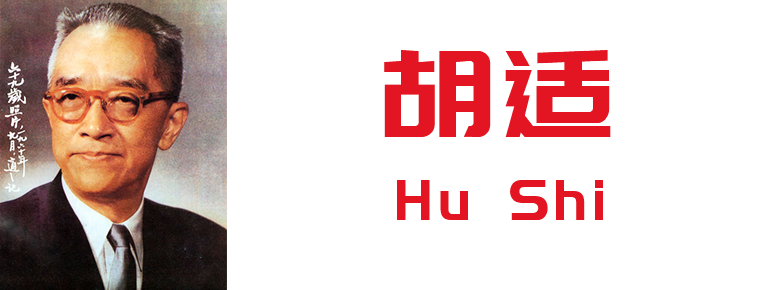
-
Privacy Policy
We takes users' information safety and privacy as our lifeline. Based on our basic principle "Users' needs are our first priority", we are committed to enhancing the transparency of informat.
Views: 1664 Time 2018-12-08 -
Ancient songs of Miao Nationality
Miao Ancient Songs, local traditional folk literature in Taijiang County and Huangping County of Guizhou Province, is one of the national intangible cultural heritage..
Views: 220 Time 2018-12-15 -
Guan Lin Scenic Area
Guanlin, a national key cultural relic protection unit, National AAAA tourist attraction, is the first place for the burial of Shu generals Guanyu in the Three Kingdoms period. The former is an ancest.
Views: 129 Time 2018-12-24 -
Daqing Oilfield History Exhibition Hall
Daqing Oilfield History Exhibition Hall is the first original Memorial Hall in China with the theme of petroleum industry, and it is a cultural relic protection unit in Heilongjiang Province. .
Views: 155 Time 2019-01-07 -
Weiyang Palace Site in Changan City Han Dynasty
The site of Weiyang Palace in Chang'an City of Han Dynasty, located in the southwestern part of the site of Weiyang District, Xi'an City, Shaanxi Province, was built in the seventh year of Han Gaozu (.
Views: 124 Time 2019-01-13 -
Tanggu Dagukou Battery Site Museum
Dagukou Battery Site Museum is located on both sides of the Haihe River estuary in the southeast of Tanggu, Tianjin Binhai New Area. It is a national education and youth education .
Views: 154 Time 2019-02-13 -
Ginseng Chicken Hotpot
Wash ginseng, boil it in a little water, take out slices, and cook it in the original pot for 15 minutes. Still soak it in the original soup. All the above ingredients except hen nuggets and ginseng s.
Views: 240 Time 2019-03-24 -
Four Scenic Car Race
Duyuan Sijing Car Race is a folk activity in Pingshun County, Shanxi Province. In May 2011, Pingshun County, Shanxi Province declared the "Four Scenic Car Race .
Views: 349 Time 2019-04-28 -
Silk weaving skills in Suzhou
Tilting, also known as carving, is an ancient and unique traditional weaving process in China. It mainly exists in Suzhou and its surrounding areas. Since the Southern Song Dynasty, Suzhou silk has be.
Views: 344 Time 2019-06-17 -
Can Ding Zhens Pony pearl really run first
Recently, after the exposure of Ding Zhen's Pony pearl, many netizens have a question in their hearts: "can it really run first?"? After the news release, netizens have been hotly debated. The specific contents are as follows:.
Views: 132 Time 2020-12-07 -
Historical evolution of Neijiang
Xia and Shang were Liangzhou, Zhou was Yongzhou, spring and autumn and Warring States were ba Jun and Shu Jun; Western Han Dynasty was Zizhou; Eastern Han Dynasty was Han'an county..
Views: 323 Time 2020-12-16


